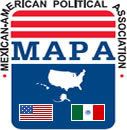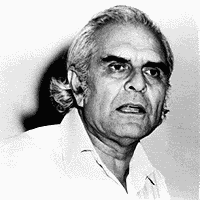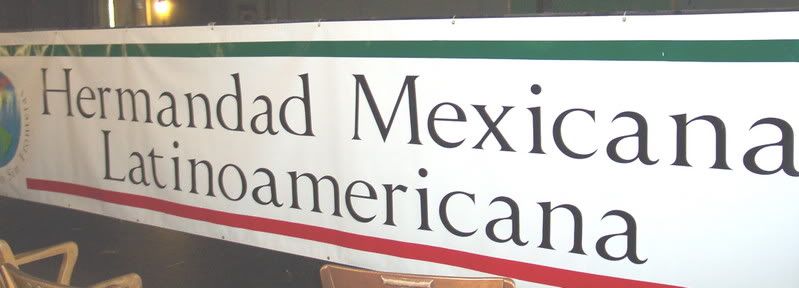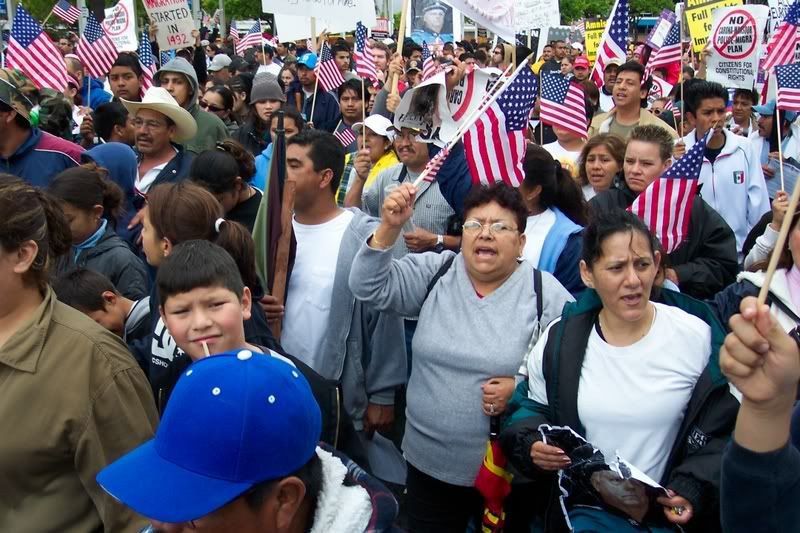Thursday, May 29, 2008
For Immediate Release
Contact: Edward Headington
Edward@HeadingtonMedia.com
Cesar Chavez called him his mentor to us when we once met him in La Paz to spend the day and share experiences. He was the modern founder of the immigrants’ rights movement in the United States, and ironically, not enough of the immigrants currently fighting for legal status and respect for their human dignity, and the organizations that advocate for them, know about his life and work. The Los Angeles City Council yesterday declared today, May 29, 2008, Bert Corona Day, and the resolution “urges all residents to celebrate Bert Corona’s life and contributions by engaging in service, events, and actions representative of his legacy on his birthday…,” and that his day “shall be observed as Bert Corona Day in the City of Los Angeles and that the City of Los Angeles honors Bert Corona and his life, work and legacy.”
The resolution was introduced by Councilmembers Richard Alarcon and Jose Huizar, and in this they pay appropriate homage to a person who did so much to not only improve the conditions of life and work of immigrants, but also to increase political representation for Mexican Americans and Latinos. Alarcon and Huizar are the direct beneficiaries of his life’s work, and they acknowledge the same. Both represent districts that are probably amongst the jurisdictions that had the largest number of individuals who qualified for the 1986 amnesty, legalized their status, and seven years later obtained U.S. citizenship status and voted for the first time in their adopted country. Eventually three million previously undocumented migrants would do so. Latino political representation throughout the U.S., especially in the Southwest, would grow exponentially as a result from 1996 forward.
Mario Garcia, the author who collaborated with Bert Corona in the narration of his memoirs asks and answers the question, “Who is Bert Corona?” “To put it simply, Bert Corona is a Mexican-American labor and community activist, whom I have admired for many years. After collaborating on the writing of his life history, I admire him even more. Bert Corona is a Mexican-American whose life and political career correspond to many of the key themes and periods of twentieth-century American history, in particular those of the Mexican-American experience. His life and work embody the changing character of the Mexican-American communities in the United States.” (Memories of Chicano History: The Life and Narrative of Bert Corona, University of California Press, 1994)
Bert Corona was born in 1918 in El Paso, Texas from a family of revolutionaries, literally. The family fled Mexico during the revolution from their native state of Chihuahua like so many hundreds of thousands of other immigrants and refugees. Corona’s father had served as a military officer under General Francisco Pancho Villa, and was ultimately assassinated, as was the great revolutionary caudillo Villa. Garcia defines Corona’s generation as follows, “Having grown up along the border as the child of Mexican immigrants, Corona represented by the 1930s a new generation of Mexican-Americans who had been born or raised in the United States and who began to distinguish themselves from their immigrant roots. They were still mexicanos, but they were also American citizens. According to Garcia, Corona’s generation “became aware of an identity that resembled what W.E.B. DuBois referred to as the “double consciousness” of black Americans: the consciousness both of being black and of being American.” He refers to the Mexican-American Generation at that “which came of political age between the 1930s and the 1950s, “ and in particular, “Corona joined in the renewed struggles for social justice and first-class citizenship identified with this political generation.”
Corona’s life extended from his two years education at the University of Southern California (USC) on a basketball scholarship, the International Longshore and Warehousemen Union (ILGWU) where he served as an organizer and union officer, an enlisted soldier-paratrooper in the U.S. Army, and activist and founder of many organizations, some of which include the Mexican American Youth Movement (MAM) in the 1930s, the National Congress of Spanish-speaking Peoples (1930s), Community Service Organization (1940s), the Asociacion Nacional Mexico-Americana (ANMA) in the 1950s, the Mexican American Political Association (MAPA) in the 1960s, the Center of Autonomous Social Action (C.A.S.A.) in the 1970s, and the Hermandad Mexicana Nacional in the 1980s forward. He participated in the founding of the Mexican American Legal Defense and Educational Fund (MALDEF) and the National Council of La Raza, and many other organizations and coalitions.
Corona was born on the same day as President John F. Kennedy, but one year later, and died on January 15, 2001, the birthday of Dr. Martin Luther King, Jr. – a curious historical coincidence.
He lived and worked long enough to realize many dreams, goals, and accomplishments, and observe, while directly participating in, the greatest spike of political representation for Latinos throughout the U.S.
Today we commemorate what would have been Corona’s 90th birthday and thank the Los Angeles City Council for their thoughtfulness in unanimously approving the Bert Corona Day resolution, and especially the initiative taken by Councilmembers Alarcon and Huizar. He along with Soledad Alatorre, Socorro Jimenez, Isabel “Chavela” Rodriguez, Rose Chernin, Humberto Camacho, and many other activists and leaders of that early period, were the founders of the modern immigrants’ rights movement, launched the first KNOW YOUR RIGHTS campaigns, organized mass mobilizations against invasive immigration raids and unjust deportations, fought to pressure the labor movement to eliminate all barriers to union organization of undocumented immigrants, publicly criticized Cesar Chavez, Dolores Huerta, and the UFW to correct their position on the immigration question, and formed some of the first national coalitions to demand legalization and humane federal immigration reform.
Having worked with Bert Corona for more than a quarter of a century in both CASA and Hermandad Mexicana Nacional, I can say unequivocally that he would have graciously accepted the accolade, but would have firmly advocated for immigration reform on a municipal level – things that local elected officials (even those who authored the resolution) can immediately do without deferring to the U.S. Congress or waiting for “comprehensive” immigration reform at the federal level.
He would have spoken forcefully in favor of stopping the impounding of vehicles by police authorities due to the lack of a driver’s license. He would have proposed a municipal I.D. for anyone desiring one as a minimal and fair protection option to the state’s racist policy of denying a state I.D. and driver’s license to undocumented migrants – not dissimilar to the leadership demonstrated by the city of San Francisco. Corona would have insisted on strengthening Special Order 40, which in fact was enacted based on his personal advocacy with the Los Angeles Police Department in 1979. And, he certainly would have demanded much from those to whom much is given, the mayor and city council, to make the city of the angels much more immigrant and refugee friendly, a sanctuary as declared under Mayor Tom Bradley, an ICE-raid free environment, and recognize that the questions of affordable housing, access to universal healthcare, expansion of reasonably priced public transportation, and a fair wage for all workers in all industries are most definitely within the scope of municipal jurisdiction, and also intricately related to the question of fair and humane immigration polices and practices.
- Nativo V. Lopez, National President of Mexican American Political Association (MAPA) and Hermandad Mexicana Latinoamericana (HML)
###
Nativo V. Lopez is currently the National President of the Mexican American Political Association (MAPA) and Hermandad Mexicana Latinomamericana (HML), which requires of him full-time advocacy for the civil, human, labor, and immigrant rights of Mexicans, Mexican Americans, and Latinos throughout the United States. He has dedicated his life to these causes since his years as a high school student where he founded the first student movement organization, United Mexican American Students (UMAS). He was born in Boyle Heights, Los Angeles in 1951 to Mexican American parents, and is of both eighth-generation native U.S. born and immigrant stock. Nativo met the legendary immigrant organizer, leader, and advocate, Humberto “Bert” Corona, in 1971 and worked with him in various capacities for thirty years with the organizations Center for Autonomous Social Action (CASA), Hermandad Mexicana, and MAPA. He was a lead organizer in the 2006 pro-immigrant marches and was part of the creation of the National Alliance for Immigrant’s Rights (NAIR) in Chicago, Illinois. For more information, go to www.nativolopez.blogspot.com/.
The Mexican American Political Association, an advocacy organization, was founded in Fresno, California in 1963 and has chapters throughout California. It is dedicated to the constitutional and democratic principles of political freedom and representation for the Mexican, Mexican-American and Latino people in the United States. For more information, visit the MAPA website at http://www.mapa.org/.
Hermandad Mexicana Latinoamericana (National Mexican Latin American Brotherhood), an advocacy organization for immigrants, was created in 1951 to achieve the development and integration of Latino immigrants that live in the United States. It is dedicated to improving economic and social opportunities of immigrants and their families, and maintains that a better future for children is an inalienable right. For more information, visit the HML website at http://www.hermandadmexicana.org/.





